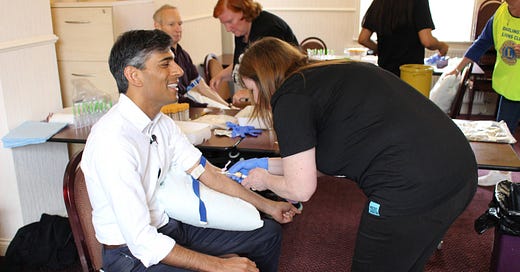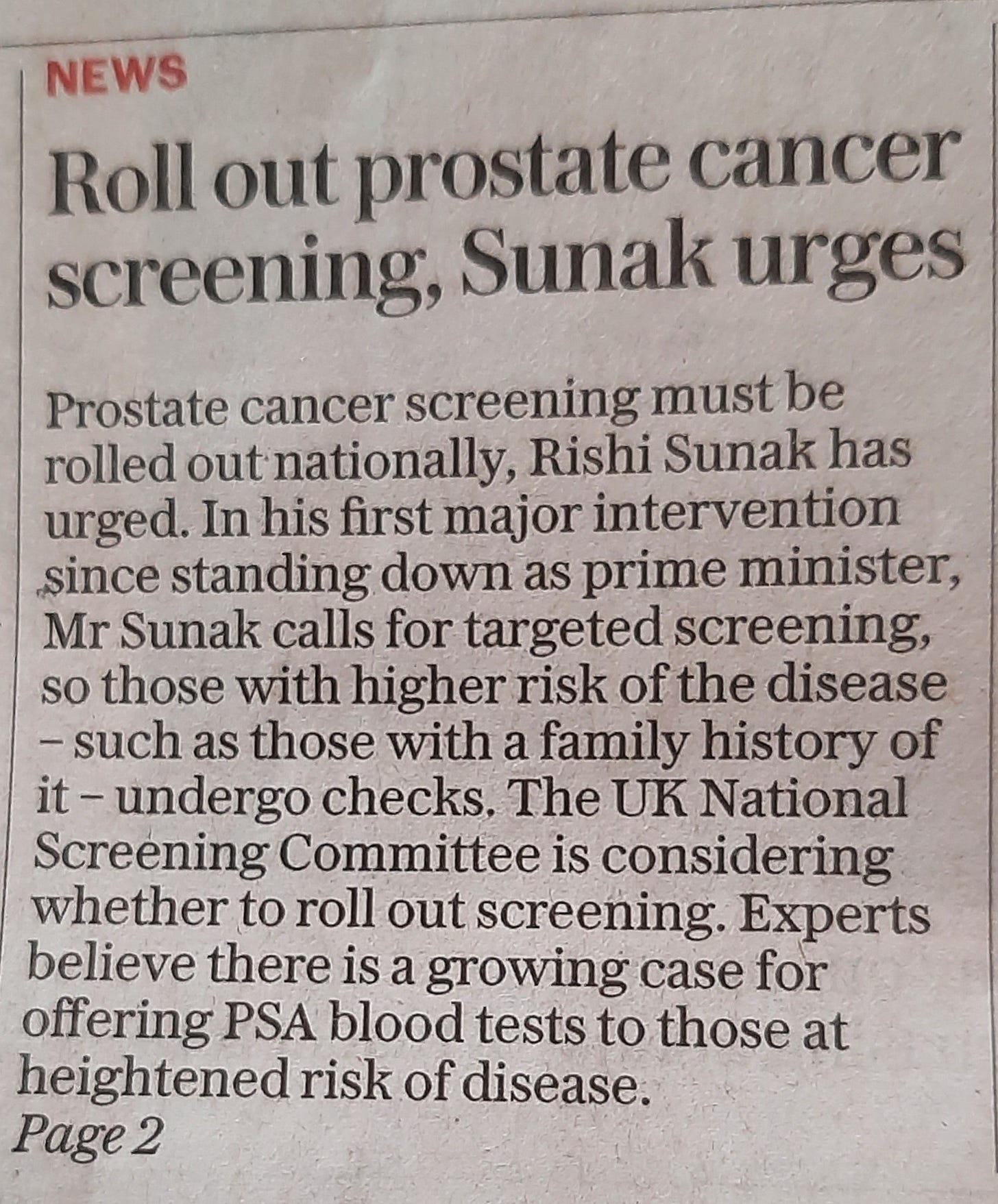So today was a very big day. I had my last (I hope ever) Martian Death Ray Treatment. Slightly delayed from the planned 0840 kick-off (Mrs G and I’s fault for getting stuck in traffic, not the hospital’s), I started at about 0930, but was out and back in the hospital restaurant by 10. The staff were exemplary, I continue to be deeply impressed by everybody at Mount Vernon, and the cup of tea I’d started before being called and told to come right over was still warm enough to drink, if not quite hot when I got out.
The treatment was much the same as the previous five except that they peeled off and threw away the transparent plasters protecting the very faint aiming-mark tattoos, and then at the end they handed me a letter…
Hurrah! I feel somewhat now like I did when I handed in my PhD thesis in 2004 - this treatment has dominated my life for so long (okay, only about 8 months, compared to the 8 years of my PhD, but it feels like forever), I’m now seriously wondering what to do now.
Of course, the answer to that is obvious - I need to get my life back on track. Before I talk about that though - there’s a word in this letter I keep seeing and I thought that I should look up exactly what it means. It’s “radical”; so we’ve seen terms like radical prostatectomy, radical mastectomy, and so-on. I must admit I thought that it simply meant “big and irreversible”, but it turns out not. In this specific medical context, the word derives from the Latin “radix” or root and it actually means to eliminate the root cause of the disease. So my radical radiotherapy is intended to permanently eliminate my cancer. Good, that is what we need - but I hadn’t got curious enough about the term before to properly understand it.
Of course, this isn’t the end of my treatment, but we are I hope now into the end game: even if that’s going to be a long one. I still need to keep on with the hormone treatment (this is to try and starve of testosterone any residual cells that escaped both chemo and radio), I need to get rid of a load of excess weight (depending upon your baseline at-least 6kg, but ideally 11kg), and I’d like to get my fitness back up where I like it again, both for general health and wellbeing, and just as importantly, to minimise the risk of my cancer coming back. I’m actually pretty happy about having maintained a 10 miles/week cross-country running average through this year of treatment, but would like to double that for the second half of the year if I can, and maybe get close to or pass my 14 mile average from 2024 by the end of the year. This isn’t just my ego (although it is a bit) but I really do firmly believe that this level of fitness is vital to my survival through this whole process, and for that matter has been why my journey so far - however much I’ve hated it - has been much less painful than many other people’s. This is also part of my message to the whole world from my cancer journey; even if you are hopefully totally cancer and other disease free right now, one day you might not be, and you may not get any warning of that (I definitely didn’t). So are you ensuring you have a body with enough reserves to keep you going through both the disease, and the treatment? It turned out that I did, and I’m really glad of that. Now to rebuild my reserves both for ongoing healing, and against anything else that life might throw at me without warning.
And to start to devote myself more full time to my work again. I absolutely love and believe in my work at Cranfield, and my managers and colleagues have been brilliant through all this - but it’s inevitably been neglected since my diagnosis in November, because of treatment times, because of fatigue, and sometimes because my mind was simply elsewhere. I’d like to get back to where I am, and repay their support. Let’s be realistic though, that’s going to take a month or three.
Meanwhile, there’s been a few interesting interventions in the news recently, not least from former British Prime Minister, Rishi Sunak…
So Mr Sunak, since he got booted out as PM last year by a fed-up electorate, has signed up as an ambassador for Prostate Cancer UK, and is actively campaigning on their behalf, including for a national prostate cancer screening programme. Initially through the use of PSA testing, but ultimately one hopes through better technologies, of which there are quite a few on the horizon.
I can see a few people around on social media rather cynical about this - saying that he should have done something about this when he was Chancellor or Prime Minister, or that he’s doing it because he sees financial advantage for himself in it. Personally I think that’s deeply churlish, and that the people saying such things are wrong (and for the record I did think he was a pretty mediocre PM, so I’m far from a fan of his otherwise). He’s run the country (a rather busy job!) and unlikely to get a chance to do so again, and he’s rich as Croesus, so really has nothing to gain personally from this. There may be some personal connection with the disease that we don’t know about: I suspect that there is, but ultimately, he seems to me to be doing good things for pure reasons. He wants us all to get tested and treated as early as possible if we have this bloody disease. So do I, and I sincerely hope that his intervention helps Prostate Cancer UK achieve their objectives.
(Photo gratuitously stolen from Mr Sunak’s constituency party webpage. Looks like he enjoys needles as much as I do!)
Incidentally PSA testing is criticised by some for being a poor test of whether somebody has prostate cancer itself, often providing false positives. In that they are technically correct, but I think it’s still an invalid argument because PSA readings aren’t used to trigger treatment, they are used to trigger further testing. In my case that was an MRI scan, the infamous digital test (finger up your bottom), a biopsy (which is no fun at-all but absolutely confirmed that I had cancer and how aggressive it was: the infamous “Gleason Score”), and after that a bone scan, and a PET/CT scan to help design the treatment. From what I can tell, if the PSA had given a false positive, those would have told us that and I’d not have had treatment inappropriately.
Yes, there are technologies that could do a better job, and they need developing - but without doubt the UK (and most other countries) needs a screening programme NOW, with the best medical technology available. Let’s start with PSA, then we can transition to other technologies as they’re perfected.
More soon. I want to talk about how radiotherapy works sometime, amongst quite a few other things. Ye gods I’ve already written 39,000 words of this blog, that’s about half a decent novel - thank you for continuing to read it. I hope it’s giving you value.







Another informative post, respect for not wallowing in self - pity, and taking time to share your newly gained knowledge with us all. The chemotherapy history post was particularly illuminating, for some reason, information seems to lessen it's impact. Cheers Guy
Well done Guy, another big milestone completed. More than anything (for me at least) it’s a mental game now post treatment.